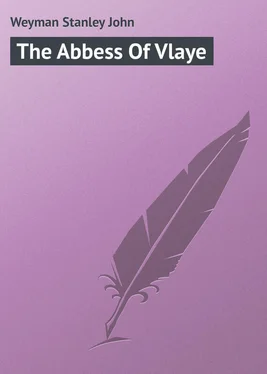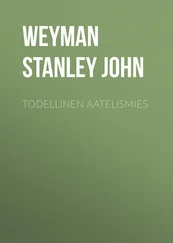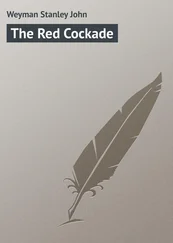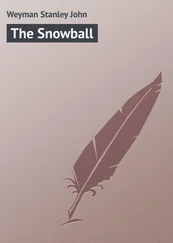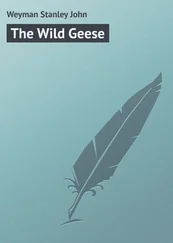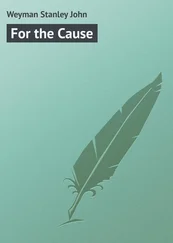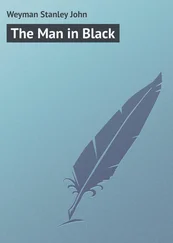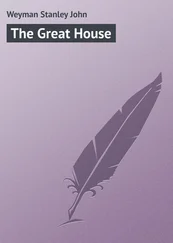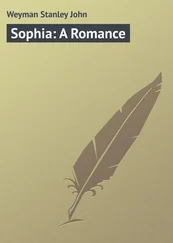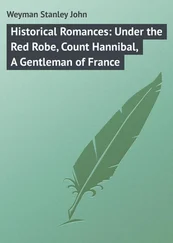Stanley Weyman - The Abbess Of Vlaye
Здесь есть возможность читать онлайн «Stanley Weyman - The Abbess Of Vlaye» — ознакомительный отрывок электронной книги совершенно бесплатно, а после прочтения отрывка купить полную версию. В некоторых случаях можно слушать аудио, скачать через торрент в формате fb2 и присутствует краткое содержание. Жанр: foreign_prose, на английском языке. Описание произведения, (предисловие) а так же отзывы посетителей доступны на портале библиотеки ЛибКат.
- Название:The Abbess Of Vlaye
- Автор:
- Жанр:
- Год:неизвестен
- ISBN:нет данных
- Рейтинг книги:5 / 5. Голосов: 1
-
Избранное:Добавить в избранное
- Отзывы:
-
Ваша оценка:
- 100
- 1
- 2
- 3
- 4
- 5
The Abbess Of Vlaye: краткое содержание, описание и аннотация
Предлагаем к чтению аннотацию, описание, краткое содержание или предисловие (зависит от того, что написал сам автор книги «The Abbess Of Vlaye»). Если вы не нашли необходимую информацию о книге — напишите в комментариях, мы постараемся отыскать её.
The Abbess Of Vlaye — читать онлайн ознакомительный отрывок
Ниже представлен текст книги, разбитый по страницам. Система сохранения места последней прочитанной страницы, позволяет с удобством читать онлайн бесплатно книгу «The Abbess Of Vlaye», без необходимости каждый раз заново искать на чём Вы остановились. Поставьте закладку, и сможете в любой момент перейти на страницу, на которой закончили чтение.
Интервал:
Закладка:
On which, "You are too late, my lord," the Bat rejoined; and Joyeuse saw that with all his politeness he was as gloomy as his name. "He left Lyons this afternoon."
"With what attendance?" the Duke asked in great surprise. For he had not heard of it.
"Alone, my lord Duke."
"Does he return to-morrow?"
"I know not."
"But you know something!" the young noble retorted with more of vexation than the circumstances seemed to justify.
"My lord, nothing," the Bat answered, "save that we are ordered to follow him to-morrow by way of Clermont."
"To his province?"
"Even so, my lord."
Joyeuse struck his booted foot against the pavement, and the sombre Bat, whose ears-some said he got his name from them-were almost as long as his legs, caught the genial chink of gold crowns. It was such music as he seldom heard, for he had a vision of a heavy bag of them; and his eyes glistened.
But the chink was all he had of them. Joyeuse turned away, and with a stifled sigh and a shrug went back to the play-table at the Archbishop's palace. Sinning and repenting were the two occupations in which he had spent one half of his short life; and if there was a thing which he did with greater ardour than the first-it was the second.
CHAPTER I.
VILLENEUVE-L'ABBESSE
The horse looked piteously at the man. Blood oozed from its broken knees and its legs quivered under it. The man holding his scratched and abraded hand to his mouth returned the beast's look, at first with promise of punishment, but by and by less unkindly. He was a just man, and he saw that the fault was his; since it was he who, after crossing the ridge, had urged the horse out of the path that he might be spared some part of the weary descent. Out of the path, and cunningly hidden by a tuft of rough grass, a rabbit-hole had lain in wait.
He contented himself with a word of disgust, therefore, chucked the rein impatiently-since justice has its limits-and began to lead the horse down the descent, which a short sward rendered slippery. But he had not gone many paces before he halted. The horse's painful limp and the sweat that broke out on its shoulders indicated that two broken knees were not the worst of the damage. The man let the rein go, resigned himself to the position, and, shrugging his shoulders, scanned the scene before him.
The accident had happened on the south side of the long swell of chalk hills which the traveller had been mounting for an hour past; and scarcely a stone's-throw below the ruined wind-mill that had been his landmark for leagues. To right and left of him, under a pale-blue sky, the breezy, open down, carpeted with wild thyme and vetches, and alive with the hum of bees, stretched in long soft undulations, marred by no sign of man save a second and a third wind-mill ranged in line on the highest breasts. Below him the slope of sward and fern, broken here by a solitary blackthorn, there by a clump of whin and briars, swept gently down to a shallow wide valley-almost a plain-green and thickly wooded, beyond which the landscape rose again slowly and imperceptibly into uplands. Through this wide valley flowed from left to right a silvery river, its meandering course marked by the lighter foliage of willows and poplars; and immediately below the traveller a cluster of roofless hovels on the bank seemed to mark a ford.
On all the hill about him, on the slopes of thyme, and heather, and yellow gorse, the low sun was shining-from his right, and from a little behind him, so that his shadow stretched far across the sward. But in the valley about the river and the ford evening was beginning to fall, grey, peaceful, silent. For a time his eyes roved hither and thither, seeking a halting-place of more promise than the ruined cots; and at length they found what they sought. He marked, rising from a mass of trees a little beyond the ford, a thin curl of smoke, so light, so grey, as to be undiscoverable by any but the sharpest eyes-but his were of the sharpest. The outline of the woods at the same point indicated a clearing within a wide loop of the river; and putting the one with the other, des Ageaux-for it was he-came to a fair certainty that a house of some magnitude lay hidden there.
At any rate he saw no better chance of shelter. It was that of the ruined hovels and the roadside, and taking the rein once more, he led the horse down the hill, and in the first dusk of the evening crossed the pale clear water on stepping-stones. He suffered the horse to stand awhile in the stream and drink and cool its legs amid the dark, waving masses of weed. Then he urged it up the bank, and led it along the track, that was fast growing dim, and grey, and lonesome.
The horse moved painfully, knuckling over at every step. Yet night had not quite fallen when the traveller, plodding along beside it, saw two stone pillars standing gaunt and phantom-like on the left of the path. Each bore aloft a carved escutcheon, and in that weird half-light and with a backing of dark forest trees the two might have been taken for ghosts. Their purpose, however, was plain, for they flanked the opening, at right angles to his path, of a rough road, at the end of which, at a distance of some ten score paces from the pillars, appeared an open gateway framed in a dim wall. No more than that, for above was the pale sky, and on either hand the black line of trees hedged the narrow picture.
The traveller peered awhile at the escutcheons. But gathering darkness and the lichens which covered the stone foiled him, and he was little the wiser when he turned down the avenue. When he had traversed a half of its length the trees fell back on either hand, and revealed the sullen length of a courtyard wall, and rising within it, a little on his right, a dark mass of building, compact in the main of two round towers, of the date of Philip Augustus, with some additions of more modern times. The effect of the pile, viewed in that half-light, was gloomy if not forbidding; but the open gateway, the sled-marks that led to it, and the wisps of hay which strewed the road, no less than the broken yoke that hung in the old elm beside the entrance-all these, which the Lieutenant's eyes were quick to discern, seemed to offer a more homely and more simple welcome.
A silent welcome, nevertheless, borne on the scent of new-mown, half-gathered hay; a scent which des Ageaux was destined to associate ever after with this beginning of an episode, and with his entrance in the gloaming, amid quiet things. Slowly he passed under the gateway, leading the halting horse. Fallen hay, swept from the cart by the brow of the arch, deadened his footfalls, and before he was discovered he was able to appreciate the enclosure, half courtyard, half fold-yard, sloping downward from the house and shut in on the other sides by a tile-roofed wall. At the lower end on his left were stalls, and sheds, and stables, and a vague, mysterious huddle of ploughs and gear, and feeding beasts, and farm refuse. Between this mass-to which the night began to lend strange forms-and the great, towered house which loomed black against the sky, lay the slope of the court, broken midway by the walled marge of a swell something Italian in fashion, and speaking of more prosperous days. On this there sat, as the traveller saw, two figures.
And then one only. For as he looked, uncertain whether to betake himself first to the stables of the house, one of the two figures sprang from the wall-edge, and came bounding to him with hands upraised, flying skirts, a sharp cry of warning.
"Oh, take care, Charles!" it cried. "Go back before M. le Vicomte comes!"
Then, at six paces from him, she knew him for a stranger, and the last word fell scarcely breathed from her lips; while he, knowing her for a girl, and young by her voice, uncovered. "I seek only a night's shelter," he said stiffly. "Pardon me, mademoiselle, the alarm I fear I have caused you. My horse slipped on the hill, and is unable to travel farther."
Читать дальшеИнтервал:
Закладка:
Похожие книги на «The Abbess Of Vlaye»
Представляем Вашему вниманию похожие книги на «The Abbess Of Vlaye» списком для выбора. Мы отобрали схожую по названию и смыслу литературу в надежде предоставить читателям больше вариантов отыскать новые, интересные, ещё непрочитанные произведения.
Обсуждение, отзывы о книге «The Abbess Of Vlaye» и просто собственные мнения читателей. Оставьте ваши комментарии, напишите, что Вы думаете о произведении, его смысле или главных героях. Укажите что конкретно понравилось, а что нет, и почему Вы так считаете.
